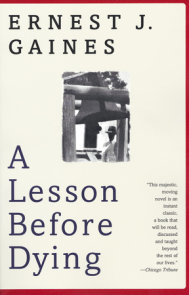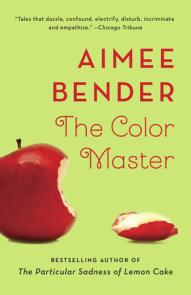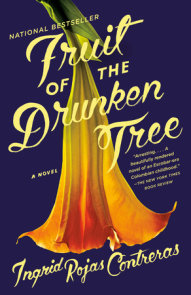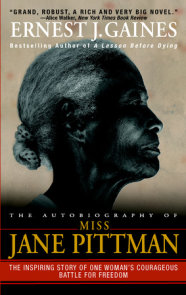READERS GUIDE
Reading Group GuideGo Tell It on the Mountain
A Novel
By James Baldwin
Introduction
Gaining power from its nuanced portrait of Black life and spirituality, James Baldwin’s deeply perceptive debut novel, Go Tell It on the Mountain, is a compelling story of a young boy’s coming of age that established Baldwin as one of the most celebrated writers of the twentieth century.
On the morning of his fourteenth birthday, John Grimes realizes two things: he has sinned and he does not want to grow up to be a Pentecostal minister like his father. With these two realizations, Baldwin’s Go Tell It on the Mountain chronicles John’s struggle to assert his own identity while in the throes of moral, religious, and sexual turmoil that threatens to overcome him. While enmeshed in his greatest desires and his deepest fears, the prayers of John’s aunt, father, and mother will untangle a decades-long history that spans from slavery to the Great Migration and reveals the role of the church as a source of both salvation and repression for generations of John’s family.
The following questions are designed to enrich your discussion of James Baldwin’s Go Tell It on the Mountain. We hope they encourage thoughtful reflection and cultivate a deeper understanding of this searing debut, which positioned Baldwin as the voice of a generation.
Questions and Topics for Discussion
1. Go Tell It on the Mountain is interspersed with prayers, hymns, and biblical verses as epigraphs between sections and as dialogue within chapters. Why do you think Baldwin chose to structure the novel in this way? How does this structure amplify your understanding of the totality of the church in the lives of the characters?
2. The novel is set primarily in 1935 Harlem. How does the time period and location impact the novel’s plot and themes? As the characters grapple with godly aspirations and worldly desires, what challenges and temptations does the city present? In the end, are any of the characters able to harmonize their physical and metaphysical landscapes?
3. We meet John Grimes on his fourteenth birthday with the explanation that this was the day he realized he did not want to be like his father. What events solidified this decision? Have you ever felt pressure to follow in the footsteps of a parent or guardian? Share your own experience of confronting those expectations.
4. Reflecting on his family, John wonders, “If God’s power was so great, why were their lives so troubled?” (page 143). Describe the Grimes family. Despite being deeply concerned with living a devout life, why do you think their lives were so troubled?
5. Gabriel is positioned as the religious, authoritative, and financial head of his family. How does Gabriel complicate his family’s view on Christianity with his anger, abuse, and lies? Do you think his beliefs excuse his behavior?
6. Christian values shape each character’s views on spirituality, sexuality, and morality. What does it take to be a good man or woman according to the church’s teachings? What must be adopted, and what must be sacrificed? While each character struggles to live up to these standards, whose shortcomings are excused and whose are punished?
7. “Florence’s Prayer” illuminates the complex relationship between religion and slavery in the American South. How is religion used to justify slavery and also bring about its end? In what ways do formerly enslaved characters use biblical stories to understand their own suffering? Decades after emancipation, why do you think the novel’s characters return to religion during times of racial strife?
8. Aunt Florence is the first of many characters in the novel to flee the South during the Great Migration. Why does she leave, and what events are set in motion within her family as a result of this decision? What does the North represent to the novel’s migratory characters, including Elizabeth, Richard, and Gabriel? Does New York meet their expectations?
9. Go Tell It on the Mountain sheds light on the lives of Black women as they navigate their ambitions, realize their sexuality, and face the difficult realities of love, marriage, and motherhood. How are their options limited by forces such as the church and patriarchal social conventions in the early twentieth century? What is the danger of being labeled a “fallen woman,” and what lengths do these women go to to avoid being perceived in this way?
10. The story of Deborah’s rape and its lasting impact on her life is horrific and distressing. How does the assault shape the town’s perception of her? Why does Gabriel choose to marry her?
11. What is the root of Florence’s hatred for her brother Gabriel? Do you think her anger is justified? What truths are revealed in their final confrontation?
12. A recurring image in the novel is of the steep climb up the side of the mountain. What does this mountain represent? What is waiting at the top, and why is the climb so difficult? In the end, do any of the characters make it up?
13. Gabriel spends much of his adult life trying to atone for the sins of his past. Do you think marrying Elizabeth and raising John gave him the closure he desired? By the end of the novel, has he forgiven himself or achieved the Lord’s forgiveness that he strives for?
14. Elizabeth is described by her husband as “hardhearted, stiff-necked, and hard to bend” (page 111). Return to the early pages of “Elizabeth’s Prayer.” How is her upbringing shaped by her father’s and aunt’s opposing views, and what impact did it have on her own views on religion and morality? In what ways does she resist her husband’s authority and control?
15. The novel’s main characters all wrestle with their fears of religious punishment and the ever-present threat of destruction. How do they cope with this pressure, and what solutions does the church provide? How does the desire to be saved from destruction and save loved ones link the characters to each other?
16. Go Tell It on the Mountain speaks to themes of ancestry and inheritance. Reflect on Gabriel’s relationship with his sons Royal, John, and Roy. Why does he give his biological children the name Royal, and why is he troubled by the fact that only John has been saved?
17. Who is Elisha, and what is his role in the church? Why do you think he is an important figure in John’s life? What is the significance of his kiss at the end of the novel?
Suggested Reading
Recommended ReadingsThe Fire Next Time by James Baldwin
Native Son by Richard Wright
If Beale Street Could Talk by James Baldwin
Invisible Man by Ralph Ellison
Things Fall Apart by Chinua Achebe
Song of Solomon by Toni Morrison
Beloved by Toni Morrison
The Amen Corner by James Baldwin





















